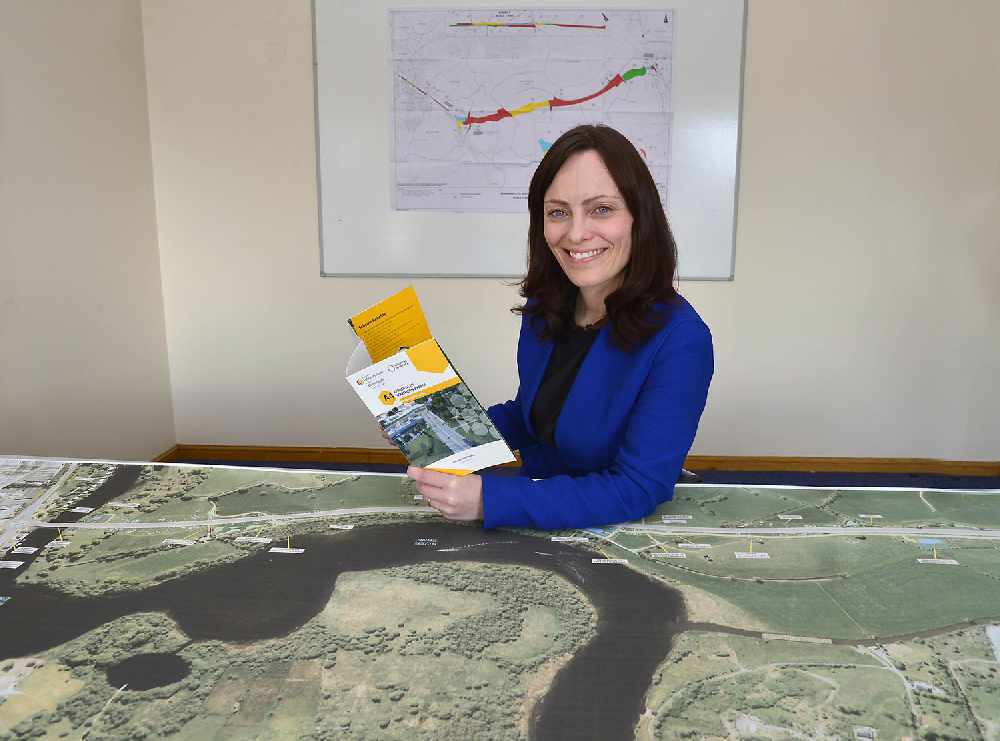
By Q Radio News/PA
A damning report into the planning system in Northern Ireland has revealed that it is not working efficiently and, in many respects, failing to deliver for the economy, community and environment.
The report by comptroller and auditor general Kieran Donnelly and local government auditor Colette Kane has also warned that there is “significant silo” in the system.
Mr Donnelly and Mrs Kane considered how the system has operated since April 2015, when responsibility for delivering the majority of operational planning functions passed from central government to local councils.
Planning applications in Northern Ireland ‘taking too long to process’ new report says. https://t.co/tYjRmYSzQ1
— Q Radio News (@qnewsdesk) February 1, 2022
However, the Department for Infrastructure retains a central role, with responsibility for preparing planning policy and legislation, as well as monitoring and reporting on the performance of councils in delivering planning functions.
The report said that almost three-quarters of regionally significant and major planning applications processed between 2017-18 and 2019-20 were not completed within the statutory target of 30 weeks.
More than half (56%) had taken more than a year to process, and 19% took longer than three years.
The report said the time taken to process major applications varies substantially between councils, with the average processing time for the slowest council more than three times that of the fastest council.
The report highlighted other notable variances between councils in their decision-making processes.
It said these include the extent to which planning decisions are delegated from elected representatives to professional planning officials, and how councils resolve enforcement cases where there are potential breaches of policies or planning conditions.
Mrs Kane says there is a lack of confidence in the planning system:
The report recognises the significant pressures that the planning system faces, with around 12,500 planning applications being processed each year since 2015.
It said that planning decisions have become increasingly complex, requiring more interaction with those who have specialist knowledge or skills, particularly with regard to assessing and managing environmental impacts.
While this requires more work for many applications, planning fees – the main source of income for the planning system – have not been adjusted year on year to keep pace with inflation.
The report said that, as a result, the planning system is increasingly financially unsustainable and the gap between the income generated from planning activities by councils and the cost of those activities has increased significantly.
These pressures have also contributed to slow progress in the creation of Local Development Plans (LDPs) by councils, the report added.
LDPs are intended to provide a 15-year framework to direct and control the scale and type of development in each council area.
However, seven years since the transfer of planning powers to local councils, none are complete and some LDPs remain at the early stages of development.
The lack of LDPs means planning decisions are not guided by long-term, up-to-date plans, the report said.
Mr Donnelly and Mrs Kane said:
“The planning system can be a key enabler for the economic and social development of Northern Ireland, as well as playing an important role in protecting the environment.
“The focus of all those involved should be on ensuring it delivers its functions in an efficient, effective and financially sustainable way.
“The planning system in Northern Ireland is not currently operating as one system.
“Rather, there is a series of organisations that are not interacting well and not delivering an effective service.
“Addressing the issues identified in this report will be both a cultural and a practical challenge, demanding strong leadership.”
Among its other findings, the report also highlighted concerns over how the planning system is dealing with applications for developments that will produce ammonia emissions.
It said a lack of clear environmental guidance in regards to levels of ammonia emissions has resulted in significant uncertainty for planning authorities and applicants.
A spokesman for the Department for Infrastructure said:
“This is an important report which will be considered further by the Assembly’s Public Accounts Committee (PAC) in the coming weeks.
“Reflecting long established protocols, it would not be appropriate for the department to comment in advance of the committee’s consideration of the report.”
 Infrastructure Minister Nichola Mallon
Infrastructure Minister Nichola Mallon


 Bikers to descend on Westminster for veterans protest against Legacy Act repeal
Bikers to descend on Westminster for veterans protest against Legacy Act repeal
 Guidance sought over future of colourful parakeets in Belfast park
Guidance sought over future of colourful parakeets in Belfast park
 Woman released after questioning over pipe bombs in Co Down
Woman released after questioning over pipe bombs in Co Down
 Suspended chief constable will not be prosecuted over alleged sexual offences
Suspended chief constable will not be prosecuted over alleged sexual offences
 MI5 files not deliberately withheld from Stakeknife probe, review concludes
MI5 files not deliberately withheld from Stakeknife probe, review concludes